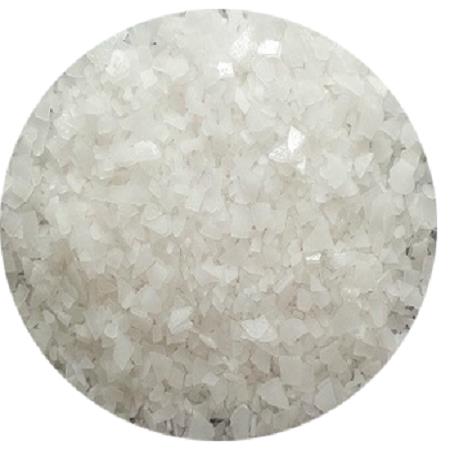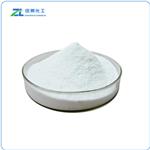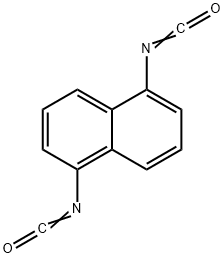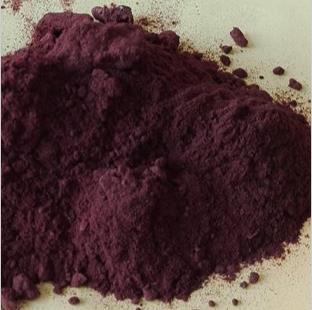1,5-Naphthalene Diisocyanate: Indication, Application, Preparation
Indication
The 1,5-Naphthalene Diisocyanate[1](C12H6N2O2), also known as NDI. Polyurethane is one of the six largest synthetic materials in the world today. According to relevant reports, the global production of polyurethane has exceeded 9.4 million tons, and Asia is the region with the largest demand. With the continuous development of global industrialization, the demand of military, automobile, construction and other industries will continue to grow, and its demand will continue to rise. Isocyanates play an important role in the preparation of polyurethane. Aromatic isocyanates refer to a class of organic substances with isocyanate substituents on the aromatic ring, such as benzene, naphthalene and anthraquinone isocyanates, such as 1,5-diisocyanate naphthalene (NDI), etc. Most of these isocyanates have unstable optical properties and are prone to yellowing, which is generally not conducive to making surface coatings. They are mainly used to synthesize rigid foam and soft foam polyurethane elastomers. The melting point of 1,5-Naphthalene Diisocyanate is high, so its synthetic PU has better performance.

Figure 1 the molecular formula of 1,5-Naphthalene Diisocyanate
Application
The 1,5-Naphthalene Diisocyanate is also widely used, including synthetic polyurethane foam, rubber, coatings, adhesives, fibers, synthetic leather, waterproof materials, elastomers, paving materials, etc., and widely used in construction, vehicles, household appliances, aerospace, electromechanical, shipbuilding, chemical, metallurgical industry, light industry, textile, medical and health and other fields of daily life, national economy and national defense construction. The 1,5-Naphthalene Diisocyanate is mostly used for synthetic coatings and other products that are easy to be exposed to the atmosphere, because the optical properties of these organic isocyanates are stable, and they will not turn yellow in the sun. For example, the polyurethane resin made from IPDI has excellent light stability and chemical resistance, and is generally used to manufacture high-grade polyurethane resin, such as light-resistant and weather-resistant polyurethane coating, It can also be used to manufacture non yellowing microporous polyurethane foam material. Although the optical properties of aromatic isocyanates are unstable, this kind of organic isocyanates have good physical properties, such as 1,5-Naphthalene Diisocyanate, which are commonly used. Their melting points are higher than those of fatty groups. The thermoplastic polyurethane elastomer prepared with them has better resilience, wear resistance and compression resistance.
Preparation
The method of producing 1,5-Naphthalene Diisocyanate by the reaction of 1,5-diamine (1,5-Diaminonaphthalene) and phosgene COCl2 was first reported in the patent GB761594 applied by Bayer Company of Germany, which was published in 1953, which is also the first report of 1,5-Naphthalene Diisocyanate synthesis and production. The method described in the patent is the gaseous phosgene method, using dichlorobenzene as the solvent, through three towers of gradual heating reaction, the final yield of 1,5-Naphthalene Diisocyanate is 90%[2] after distillation, and the reaction is shown in Figure 2:

Figure 2 Preparation of 1,5-Naphthalene Diisocyanate
There are two routes to prepare 1,5-Naphthalene Diisocyanate. Dissolve 1,5-Diaminonaphthalene with dichlorobenzene as solvent, then add a certain amount of dry HCl to make 1,5-Diaminonaphthalene salt, and then pass phosgene for reaction. After rectification, the final yield of 1,5-Naphthalene Diisocyanate is 95.7%[3]; In the patent GB1173890 applied by Russian GOSUDARSTVENNYNAUCHNO-ISSLE-DOVATELSKY company, 1,5-Diaminonaphthalene was dissolved in chlorobenzene as solvent, phosgene was preheated to 230 ℃ and then passed into the solution for reaction, and the final yield of 1,5-Naphthalene Diisocyanate was 87.6%[4].
Bis(trichloromethyl) carbonate is also known as solid phosgene or triphosgene, abbreviated as BTC, and its chemical formula is C3Cl6O3. The picture 3 shows the route of preparation for 1,5-Naphthalene Diisocyanate.[5]

Figure 3 Preparation of 1,5-Naphthalene Diisocyanate
1,5-Naphthalene Diisocyanate was produced by 1,5-dinitronaphthalene and CO as raw materials and rhodium and heterocyclic nitrogen as catalysts at 150~230°C and 50~500kg/cm2 pressure. The final yield of 1,5-Naphthalene Diisocyanate was 87.6%. The reaction is shown in Figure 4.[6]

Figure 4 Preparation of 1,5-Naphthalene Diisocyanate
References
1. Hu S, Shou T, Zhao X, et al. Rational design of a novel NDI-based thermoplastic polyurethane elastomer with superior heat resistance [J]. Polymer, 2020, 205: 122764.
2. Farbenfabriken Bayer Gesellschaft. Pruduction Isocyanates[P]. GB761549,1956-11-14.
3. SABURO SUZUKI, MASAYA KURATA,AZIKAZU AKIYOSHI,et al. Method of manufacturing Organic Polyiocyanates[P]. GB1142628,1969-03-12.
4. ARKIDY ALEXEEVICH ARTEMEV, JURY ALEXANROVICH STREPIKHEEV, YAKOVANISOMOVIC SHMIDT and BORIS MOKHAILOVICH BABKIN. Process for the Production of Isocyanates[P]. GB1173890,1969-12-10.
5. Wang SP, Ma XB et al. Isocyanate is synthesized from dimethyl carbonate [J]. Acta Petrolei Sinica2020, 4(26): 648-653.
6. Zhao B. New process of 1,5-naphthalene diisocyanate synthesis and related research [C]. Hebei. hebei University of Technology 2004: 25-34.
You may like
Related articles And Qustion
Lastest Price from 1,5-Naphthalene diisocyanate manufacturers

US $0.00/kg2025-09-04
- CAS:
- 3173-72-6
- Min. Order:
- 1kg
- Purity:
- 99%min
- Supply Ability:
- 20tons

US $10.00/kg2025-04-21
- CAS:
- 3173-72-6
- Min. Order:
- 1kg
- Purity:
- 99%
- Supply Ability:
- 20 ton

![477600-73-0 7H-Pyrrolo[2,3-d]pyriMidin-4-aMine,N-Methyl-N-[(3R,4R)-4-Methyl-1-(phenylMethyl)-3-piperidinyl]-intermediateYield](/NewsImg/2024-03-17/6384629290532289255719543.jpg)
![477600-73-0 7H-Pyrrolo[2,3-d]pyriMidin-4-aMine,N-Methyl-N-[(3R,4R)-4-Methyl-1-(phenylMethyl)-3-piperidinyl]-intermediateYield](/NewsImg/2023-02-07/6381137227283298987319516.jpg)
